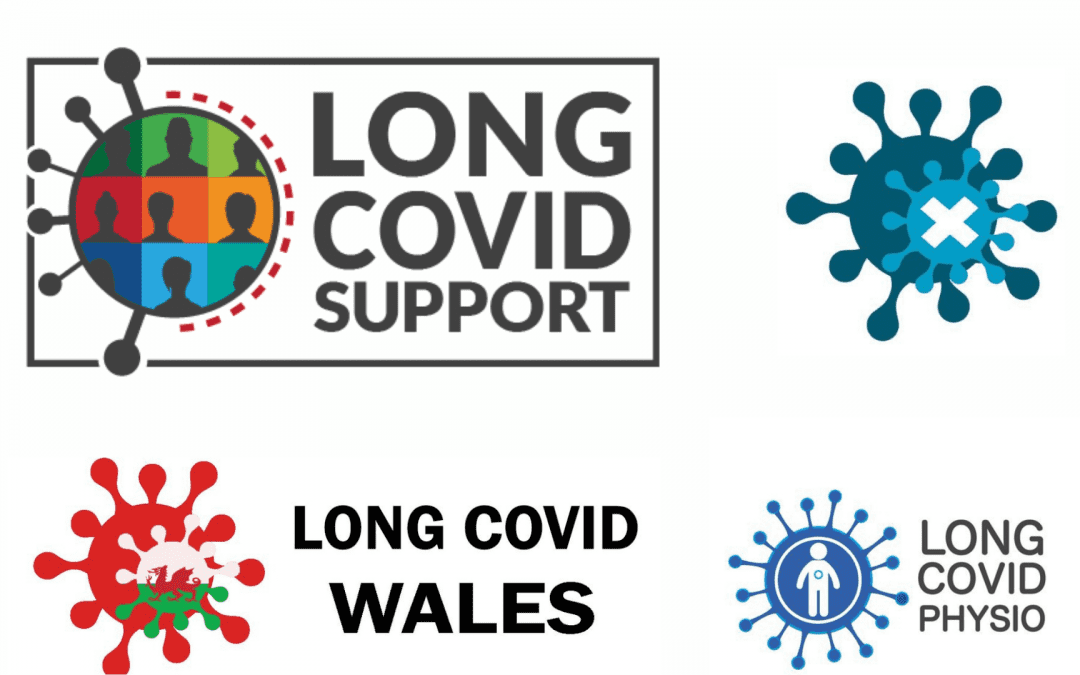Long COVID is an umbrella term that describes a cluster of symptoms related to an initial COVID infection where symptoms persist after the acute infection phase. It appears that Long COVID can affect the whole body including the respiratory, cardiovascular, neurological and gastrointestinal systems. Symptoms vary significantly between individuals, but the most commonly reported are:
- Fatigue
- Breathlessness
- Chest pain
- Brain fog
- Joint and muscle pain
- Psychological symptoms such as depression and anxiety.
Long COVID patients report that recovery is not straightforward, with the illness showing an unpredictable nature with cyclical relapses.
The recognition of Long COVID has been driven by patient activism and collective advocacy: “Long Covid… moved from patients, through various media, to formal clinical and policy channels in just a few months –How and why patients made Long Covid: Felicity Callarda and Elisa Peregob
“the public messaging was that you either have a high risk of severe initial infection, or it hardly affects your health. This was certainly not my experience nor that of the thousands of others in long COVID social media support groups” – Nisreen Alwan: Associate Professor in Public Health, University of Southampton
The experience of suffering from Long COVID can be isolating, especially as we currently don’t have access to our usual support network of family, friends and colleagues. Sharing experiences and thoughts in a support group with other people going through a similar experience can be invaluable.
In this blog we link to support groups sharing advice and resources, and talk to opera singer, Lee David Bowen, who set up Long COVID Wales, the devolved Welsh campaigning offshoot of the 36000 strong patient-led UK Support Group, longcovid.org as a result of his own experience.
BAPAM: You’ve been experiencing Long COVID symptoms for a year now?

BAPAM: Have you found Long COVID symptoms to be episodic? Do certain things trigger them and have you adapted your life to avoid triggers?
LDB: Yes, the symptoms are definitely episodic with weeks of symptoms followed by weeks of recovery. There are certain triggers such as a busy few days, too much exercise, lack of sleep and certain foods in excess. Also too much time online – zoom calls/singing lessons etc and lengthy phone calls.
BAPAM: How would you describe the effect Long COVID has had on your practice as a singer?
LDB: Luckily my voice and breathing have been excellent so I’ve maintained regular singing lessons and coaching. I have however found it almost impossible to learn new music and I can’t stay focused for long periods of time so I have to time lessons for when I don’t have symptoms. This is much better now and I am able to concentrate and learn new repertoire. I do know of other singers who have been affected by blood clots on their lungs and are unable to sing.
BAPAM: Has it affected your mood/mental health?
LDB: In terms of my mental health I think I have dealt with this really well. I think the uncertainty of the future of theatre in this country has been a bigger concern for me as I know I’m recovering well and the time has given me a good focus on new repertoire now I’m able to learn again.
BAPAM: In addition to support from your GP and the NHS, what else have you found helpful? You’ve been involved with setting up Long COVID Wales. Peer support, talking with others about shared experiences and the importance of community seem to be a strong thread over the past year.
LDB: I’ve been lucky to have a really understanding GP who has given me tests to confirm a diagnosis of Long COVID. From talking with other Long COVID patients, I know not everyone has been able to access this support or assistance with rehabilitation. The support groups have been really useful and form a really strong network of other sufferers. There are thousands joining on a weekly basis who really need help and support.
BAPAM: Have you spoken with other performers about their experiences with Long COVID? It is likely there will be a considerable number of performing arts professionals going back into the workplace/performance environment affected by Long COVID. Employers, individuals and the organisations and practitioners that support them will need to be aware and additional help/consideration might be needed.
LDB: Yes I have spoken to many performers and I know many are taking part in the support groups. Currently within the arts sector Long COVID is not really being talked about as I suppose the focus is more about getting the sector open again. However, with 1 in 10 having long term symptoms of 12 weeks or more this is going to have a massive impact in the future of the arts.
BAPAM: Thank you very much, Lee.
In the coming weeks BAPAM will be publishing resources and organising training sessions for performing arts professionals returning to work environments after lockdown, and additional advice for those in the sector with long COVID. To stay up to date please sign up for our monthly email update and follow us on Twitter, Facebook or Instagram
Long COVID Support and Information Links:
www.longcovid.org
Long Covid Support 🌍 (@long_covid) / Twitter
Long Covid Wales 🏴 (@LongCovidWales) / Twitter
Long Covid Scotland 🏴 Covid Alba (@LongCovidScot) / Twitter
Long Covid Support is a peer support and advocacy group for people living with Long Covid
Long Covid: what is it and what help is available? – Which? News
Clear overview covering ‘what to do when COVID-19 symptoms won’t go away’
Long COVID Physio (@LongCOVIDPhysio) / Twitter
Peer support group of Physios & support workers living with Long COVID, advocating for access to safe rehab and caution with exercise
Physios For ME (@PhysiosForME) / Twitter
With some similarities between Long COVID and conditions associated with fatigue, this is a good source of information and support
Long Covid Kids 💙 (@LongCovidKids) / Twitter
Advocacy and support focusing on children experiencing Long COVID
https://www.selfhelp.org.uk/COVID-19_Survivors_Group_UK
Support for long term implications of COVID-19 on the physical and mental wellbeing of survivors

